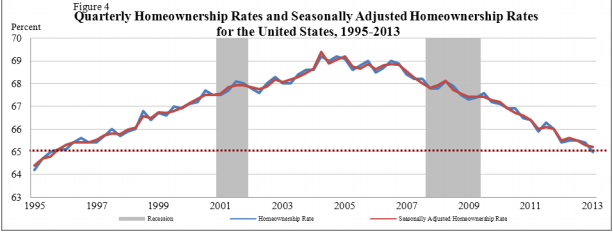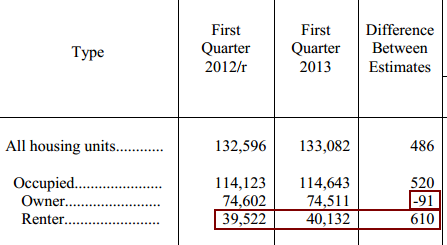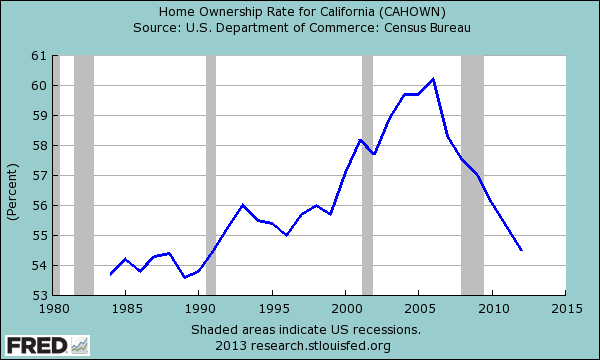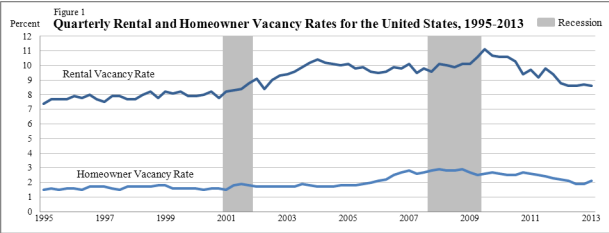Payam Raouf
Designated Broker
Arizona Property Management & Investments
(888)7776664 ext 114
To Get a Free Home Valuation
Please click on the link below:
MyTrueHomeValue.com
___________________________________________________________________________________
The renting revolution: As home prices rise, the nation continues to add renters in lieu of home owners. Is this a temporary shift or something more permanent?
By: doctorhousingbubble.com
Renting is in vogue. Regardless of the rhetoric, we have added over 1
million renting households since the housing bubble burst in epic
fashion while losing home owners. What is interesting in spite of the rapid rise in home values
is that many more households are becoming renters. Part of this
dynamic is occurring because of a dramatic amount of purchases going to
investors seeking to become landlords but also, we have 5 million people
that have lost their homes to foreclosure and may now opt to go the
renting way. The nation is becoming much more comfortable with renting a
variety of items including cars (ZipCar), locations for brief trips
(AirBnB), and of course housing. It is also the case that a large part
of our nation is having a tough time financially and job security is
definitely not what it used to be so people are opting for more
mobility. It is a fascinating reversal that reflects a change in
economics and also a drive by investors leveraging low rates to chase yields in unlikely markets. Is this a temporary trend of something more permanent?
Nationwide homeownership rate
The homeownership trend is rather clear:

Source: Census
The peak was reached in 2004 and has now reliably fallen to levels
last seen in 1995. Interestingly enough, household incomes adjusting
for inflation are also back to levels last seen in 1995. As we
mentioned in a previous article, if we include all additional households
in negative equity positions the homeownership rate is likely closer to
62 percent pushing the chart to multi-decade lows. It is clear that
once the bubble burst in 2007 that the quick reversal was because of
people losing their leveraged properties.
But the housing market is on a rapid ascent up at least with prices and
in some markets with mania like actions taking place. So why is this
happening?

We’ve added over 1 million renting households since the bubble
popped. In the last year alone, we’ve lost on a net basis 91,000 owner
occupied households and added 610,000 renters. In this period, we’ve
also added 486,000 additional housing units. Doing the math and given
the investor demand, the additional housing units are very likely in favor of rental supply (multi-unit housing permits are also on the rise).
The push towards renting
The good news is the rental vacancy rate continues to decline:
At least from a renting perspective, this is a positive trend for
those owning rental properties. Obviously Wall Street spotted this
trend since the bubble burst and has been diving in hand over fist into
the housing market pool, initially empty but knowing the Fed would be
the source of the water. Yet
some markets in Arizona, Florida, and Nevada
are saturated with rentals. There is now a likely tipping point in
terms of large money investors putting in large sums of money for very
weak yields. After all, with rates zooming up and the stock market on a
roll there are other sectors to chase for money.
Expensive state nearly 50/50 when it comes to renters and home owners
California’s homeownership rate is inching closer to where it was in
the 1980s in spite of home prices going bonkers in the last year or so:

California has a homeownership rate of 54 percent and with negative
equity owners thrown in we are closer to 50 percent meaning half the
state is renting. And make no mistake, those that are underwater are
basically in a renting position or worse. They cannot move without
selling their home for a loss. At least with a rental, you give a 30
day notice and you can move as you see fit. Some that bought at the
peak, even with the wild appreciation in some areas, are still down
$100,000 or $200,000. To leave, they would have to pay to sell.
There is this pervasive logic that somehow, some people missed
another opportunity. These people claim that they want to buy to stay
put so what does it matter that the mania pushed prices up again? You
don’t unlock any equity until you sell! So in other words, they are
speculating since they say “I missed out on a $100,000 gain” but this
flies in the face of staying put and setting roots with your family. If
a simple one year move is enough to price these people out they are not
in a financial position to buy anyway. Yet some will never feel
satisfied until they own a home like they lost their trusted childhood
security blanket. Given the above data, this seems to be more of a
minority in probably high cost areas
because in most of the country you can buy a modest home with the
absurdly low interest rates and likely be at rental parity. In very
prime California markets, that is unlikely unless you come in with large
down payments (i.e., $200,000+) and are ready to contend with the
hoards of people stampeding into weekend open houses.
Looking at the data, the trend is very clear. As we have chronicled for a couple of years now the investor demand is unprecedented
and many are left diving in to fight for the limited supply or rent.
Because of the sour taste of the bursting housing bubble and emerging
trends regarding home buying behavior, renting has been on a solid trend
going back to 2007. Even with the recent gains in the market renting
is powering forward over buying. People adapt. Many people are finding
alternatives and are finding it more beneficial to live where they
choose based on their career and lifestyle mobility versus “drive until you qualify”
which is a very typical mindset in California. You also have to wonder
what impact this will have where in states like California, half rent
(think of raising taxes or other challenges that may arise in the future
when they go to vote).
I’m curious to hear in the comments about those that have decided to
rent versus buy in the current market even though they are financially
in a position to buy.
To Get a Free Home Valuation
Please click on the link below:




